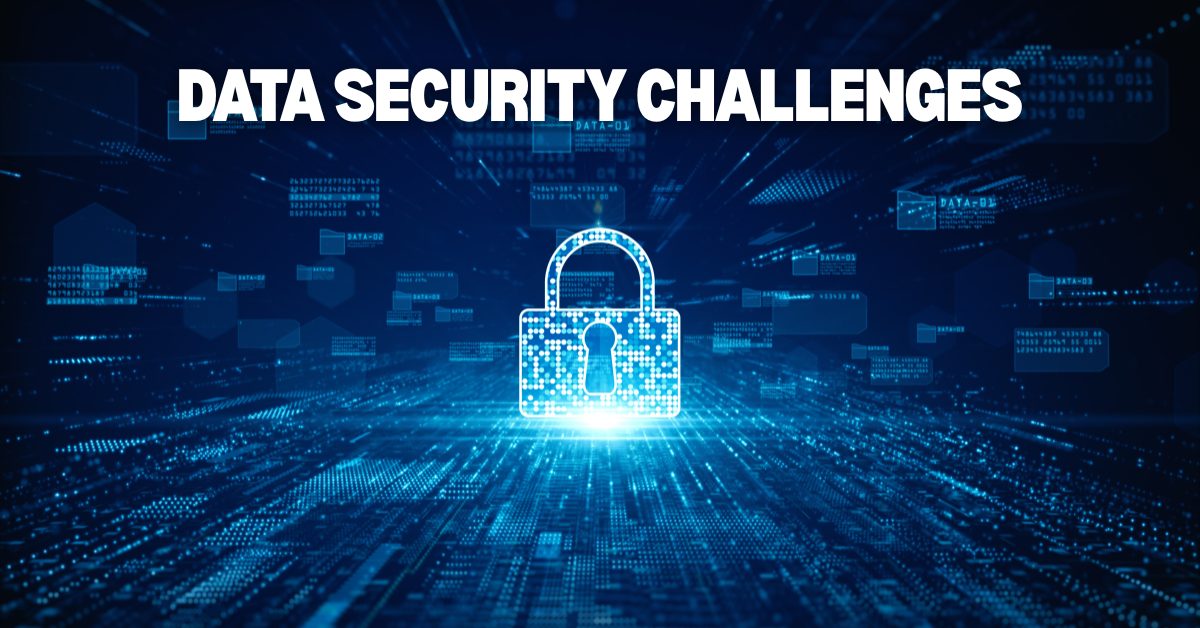Why Data Security Matters for Medium-Sized Businesses
For medium-sized enterprises, data security is no longer optional—it’s critical to survival. Whether it’s customer records, employee data, financial systems, or intellectual property, businesses today are sitting on valuable information that cybercriminals want. A single incident of compromised data can result in financial losses, damaged reputation, and regulatory penalties.
Unlike large corporations, medium-sized enterprises typically don’t have the luxury of massive IT budgets or dedicated security departments. At the same time, they face more complex challenges than small startups due to larger networks, more employees, and growing client demands. This “middle ground” makes them a prime target for cybercriminals who view them as easier to breach than large companies, yet profitable enough to attack.
This is where Gallop Technology Group makes a difference. With offerings like a Free Domain Security Check Up and customized cybersecurity services, Gallop helps medium-sized businesses tackle data protection compliance requirements, avoid costly incidents, and stay resilient.
Data Security at the Core of Business Protection
The Reality for Medium Enterprises
The complexity of handling sensitive information grows as a business expands. HR systems store employee details, financial departments manage bank information, and legal teams deal with client confidentiality. With more touchpoints comes higher risk.
Failing to establish effective data loss prevention measures can lead to massive consequences. Consider this: a phishing attack could trick an employee into sharing credentials, leading to unauthorized access of payroll data. Without strong data protection practices in place, recovery may be costly and time-consuming.
Medium-sized enterprises must therefore treat data security as a core element of business continuity—not a side project or afterthought.
Balancing Security with Limited Resources
Medium-sized businesses face a unique problem: limited budgets and staff paired with high security demands. But limited resources don’t have to mean weak protection. With the right priorities, businesses can still achieve strong data protection compliance.
Some practical approaches include:
- Cloud-Based Security: Many cloud providers include built-in security and compliance tools, offering enterprise-grade protection at a fraction of the cost.
- Automation Tools: Automated patching, monitoring, and reporting reduce the burden on small IT teams.
- Outsourced Expertise: Partnering with an MSP (Managed Service Provider) gives businesses access to experienced cybersecurity teams without hiring full-time staff.
For example, a regional law firm in Arizona reduced IT costs by outsourcing its security monitoring while focusing internal resources on case management. The result was stronger security at half the cost of a full in-house team.
Building a Culture of Security Awareness
Even the most advanced data protection technology fails if employees don’t know how to use it responsibly. A lack of awareness is one of the biggest weaknesses in medium enterprises.
Business leaders can strengthen their defense by building a company-wide culture of data security:
- Regular Training: Employees should receive training on spotting phishing emails, handling sensitive data, and reporting suspicious activity.
- Clear Policies: Simple, easy-to-understand guidelines should explain how employees should treat confidential data.
- Leadership Role Modeling: When executives emphasize the importance of security, it signals to employees that it’s not optional—it’s part of doing business.
Imagine an office manager receiving a suspicious email asking for banking details. Without proper training, they might fall victim. With ongoing training, however, they’ll report it instead of clicking the link—potentially saving the company thousands.
Navigating Regulatory Complexity
Medium-sized businesses often operate across multiple regions, each with its own data protection compliance requirements. From GDPR in Europe to CCPA in California, the regulatory landscape can feel overwhelming.
To avoid legal and financial penalties, companies must:
- Map out which regulations apply to their data collection and storage practices.
- Establish clear frameworks for handling and documenting compliance.
- Consult experts to stay updated on evolving regulations.
Non-compliance doesn’t just carry fines—it erodes client trust. By embedding compliance into daily operations, businesses show customers they take privacy seriously.
Managing Operational Disruptions
Implementing new data security measures can sometimes disrupt daily business. For example, deploying multi-factor authentication may temporarily frustrate staff used to quick logins.
To reduce resistance and keep productivity high, businesses should:
- Plan Strategically: Implement upgrades during low-traffic periods to reduce downtime.
- Roll Out in Phases: Start with one department or system before expanding to the entire company.
- Communicate Benefits: Explain to employees how security upgrades protect both them and the business.
When employees see how improvements benefit their work and protect their clients, they become allies rather than obstacles.
Overcoming Budget Constraints
A common misconception is that cybersecurity is too expensive for medium-sized businesses. In reality, the cost of a breach often dwarfs the investment in prevention.
Consider these smart moves:
- Highlight ROI: Show stakeholders how much a data breach could cost compared to implementing data loss prevention measures.
- Start Small: Prioritize investments in the most vulnerable areas, then expand protections as budgets allow.
- Explore Funding Options: Look into cyber insurance policies, government grants, or business loans to offset costs.
By demonstrating the true financial impact of a breach, leaders can secure buy-in for security initiatives.
Empowering Internal Teams
Outsourcing is helpful, but internal IT teams must remain equipped and capable. Businesses should ensure teams are trained and empowered to support security goals.
- Ongoing Education: Provide certifications and courses to keep IT staff updated on threats.
- Defined Roles: Assign clear responsibilities for incident response, compliance management, and vendor oversight.
- Adequate Tools: Give teams access to monitoring dashboards, endpoint protection, and backup systems.
This balance between in-house skill and external support creates resilience that scales with the business.
Building Strong Vendor Relationships
Vendors often handle sensitive information on behalf of medium enterprises. Without proper vetting, vendors can expose businesses to risks.
Best practices include:
- Conducting due diligence before signing agreements.
- Adding data protection compliance clauses into vendor contracts.
- Regularly auditing vendor performance.
Strong vendor management ensures security extends beyond internal systems.

Turning Data Security Challenges Into Strengths
Medium-sized enterprises don’t need to see data security as a burden. Instead, every challenge—budget limits, compliance hurdles, or operational concerns—can become an opportunity to strengthen the business.
When leaders invest in awareness, plan strategically, and align with trusted partners, they gain more than compliance—they gain resilience. Businesses that handle security well earn client trust, streamline operations, and protect long-term growth.
Partner With Gallop Technology Group for Data Security Success
At Gallop Technology Group, we specialize in helping medium-sized enterprises protect what matters most.
Our services include:
- Free Domain Security Check Up to identify vulnerabilities before attackers do.
- Tailored cybersecurity solutions built for small and medium businesses.
- Continuous monitoring and managed protection to stop threats before they disrupt your operations.
Call us today at 480-614-4227 to secure your business. With Gallop Technology Group, you gain peace of mind knowing your data protection and compliance needs are covered—so you can focus on growing your business.
Source:
European Union Agency for Cybersecurity (ENISA). Guidelines on Data Protection for SMEs.







